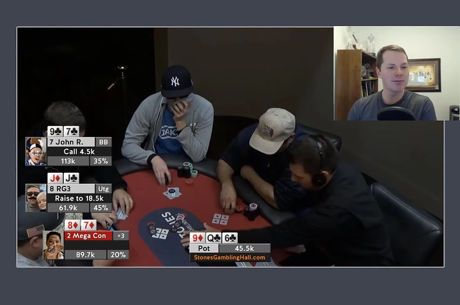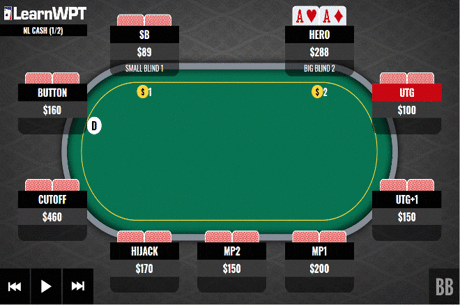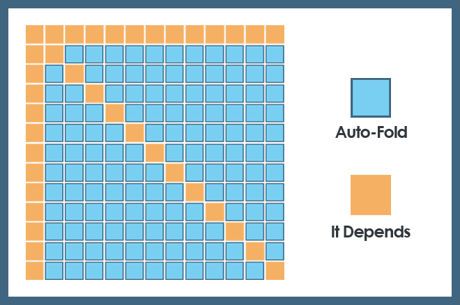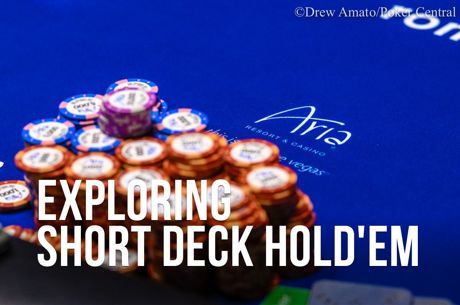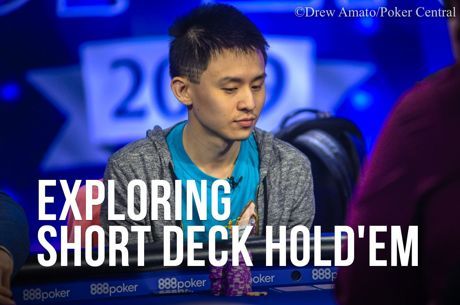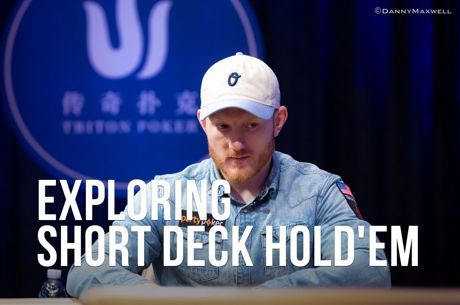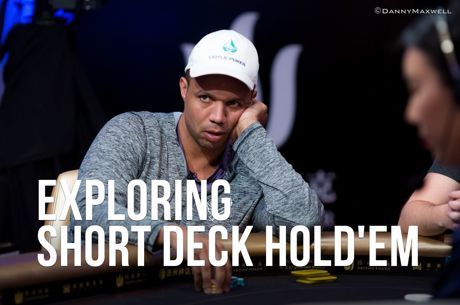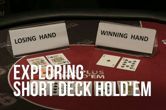Short Deck Hold'em: Redefining the Nuts
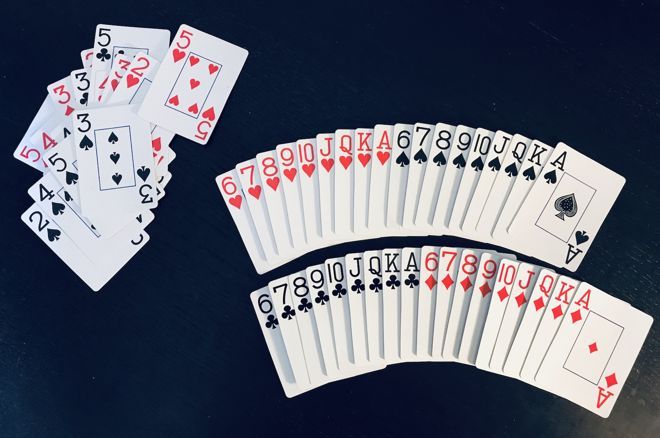
Do you ever see a flop and tell yourself, with a deep breath of hope, "I flopped the nuts"? And then later do you look back at that flop wistfully, when the pot goes to some other player, in that very same hand? As if the deck did not remember what you had said to yourself when the first three cards arrived?
In a way, "the nuts" may only be unequivocally meaningful as a concept on the river (or, sometimes, on the turn). The fact is, you can't really flop the nuts unless it's the unbeatable high end of a straight flush, because everything else can still potentially get beaten on a later street.
This fact is not so obvious in traditional hold'em. But in short deck hold'em — like Omaha — it becomes readily clear. In short deck, you can flop the best possible hand by rank, but still be a dog in terms of your odds of remaining best by the river.
To describe an extreme, even A-x can flop A-A-A and still lose against a suited Broadway hand that goes perfect-perfect. And if you've played any amount of short deck, you'll notice that perfect-perfect comes often enough!
A good example
Let's consider a more practical example. Take J-T-offsuit on a Q-9-8 rainbow flop. No better possible flop for this hand, right? Or hand for this flop?
But it turns out in short deck J-T is here a slight underdog to three hands — Q-Q, 9-9, and 8-8. With no deuces, threes, fours, or fives in the deck, another Q, 9, or 8 is going to arrive often. Also, J-T will get counterfeited on a jack-ten runout surprisingly often.
For a review of some of the major differences in the math between regular hold'em and short deck hold'em, see "Exploring Short Deck Hold'em: Odds and Probabilities."
If you gave me the choice of which hand to go with on this flop, I would choose Q-Q. It is not the nuts at the moment, but there are always two cards to come. You are slightly ahead of J-T and crushing 9-9, 8-8, and any other made hand. If I have J-T in my hand I am either flipping or chopping, unless my opponent overplays two pair.
Forget the flop
Understanding that, a question arises. If we can't gain a considerable advantage over our opponents on the flop, even in theory, should we be looking to get the money in on flops like Q-9-8 in short deck?
When we have position, the answer is probably not. If you know that someone is going to go crazy against you with Q-J or 9-8, of course let it rip. But by and large, we are going to have so many hands on this texture that want to show down on later streets that raising or reraising J-T or 9-9 is going to devastate the strength of our range on later streets when we just call.
The most profitable spot in this game is being able to make an all-in bet on the river, especially when in position. The flop equities (and preflop equities) are often so close, that it would be foolish to forsake a chance at the most profitable possible situation because it sometimes does not come to be because of the runout of the cards.
Nuts on river > nuts on flop
Those times we have the nuts on the river are so valuable, they are worth hunting. And they have the benefit of keeping our range strong. Since flopping a pair and a gutshot is such a common occurrence in short deck, whether the flop is Q-9-8 or T-8-6 or A-J-T, keeping balanced with our strong hands is going to be very important.
Anytime you flop a pair and a gutshot, all sorts of mediocre things can happen — you can make the most obvious straight on the board, you can find yourself with a bluff catcher on the river, or you can fold some equity on the flop or the turn to big pressure.
In the first case (when you make an obvious straight), it is hard to get paid off, or you could be pipped. When you have Q-J and flop is 9-8-6, and then a T comes, K-J is always out there. Meanwhile, in the same situation a hand like 9-9 is not going to be thrilled to pay off a bet.
Likewise, when facing river aggression, if your Q-J fails to improve after a Q-9-8 flop — let's say the turn and river come 7-7 — you're not going to be calling a river bet without some sort of excellent read.
These hands are tricky in short deck because at the same time they definitely have equity to continue facing aggression on earlier streets. Folding them would print your opponent money. But when we see that flopping the (so-called) "nuts" J-T does not actually benefit much from getting all in on the flop, we conveniently solve the river dilemmas we'll have on "tough" runouts.
No matter how many cards are in the deck, it is harder to pressure a range that contains the nuts, right?

